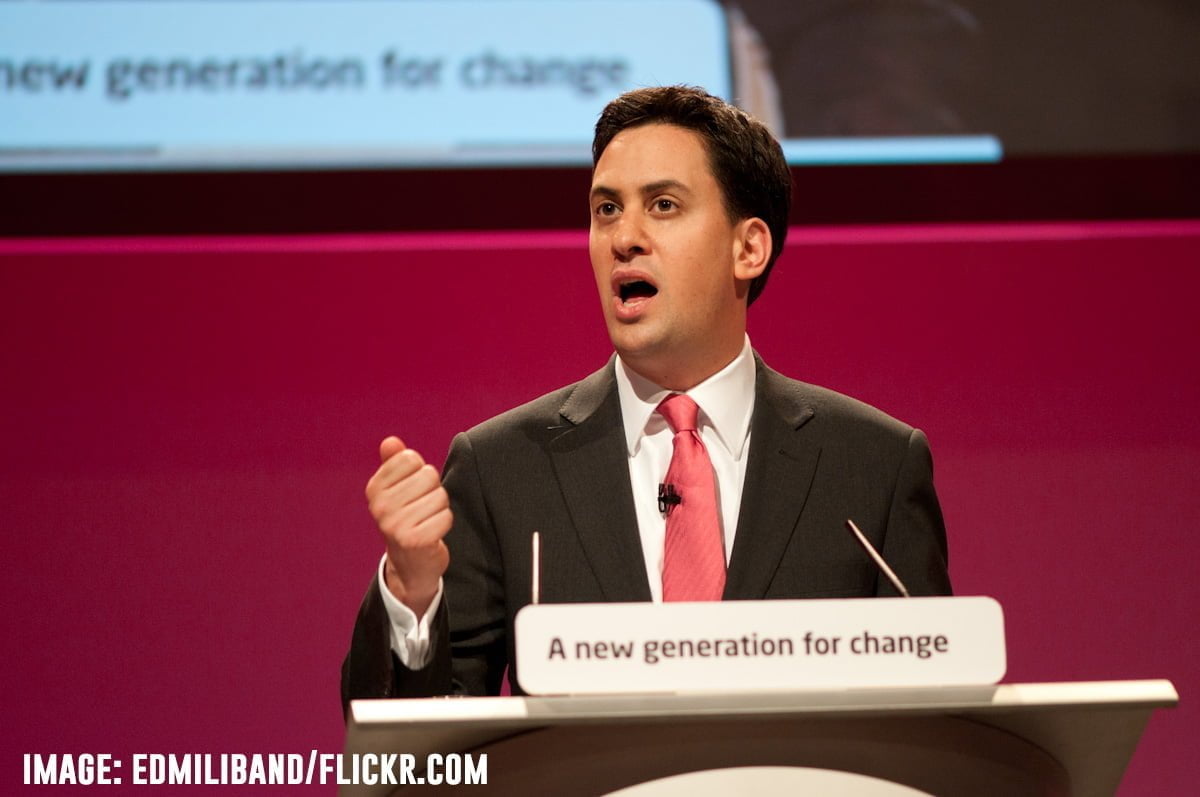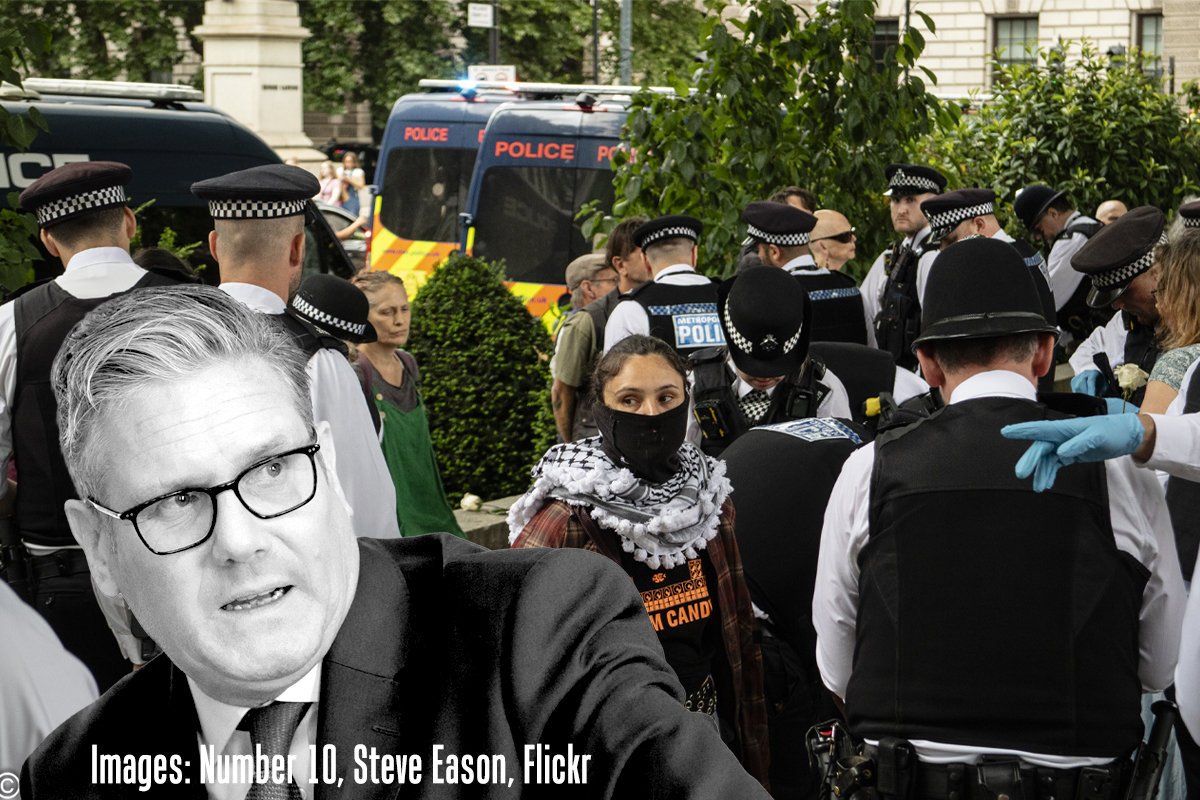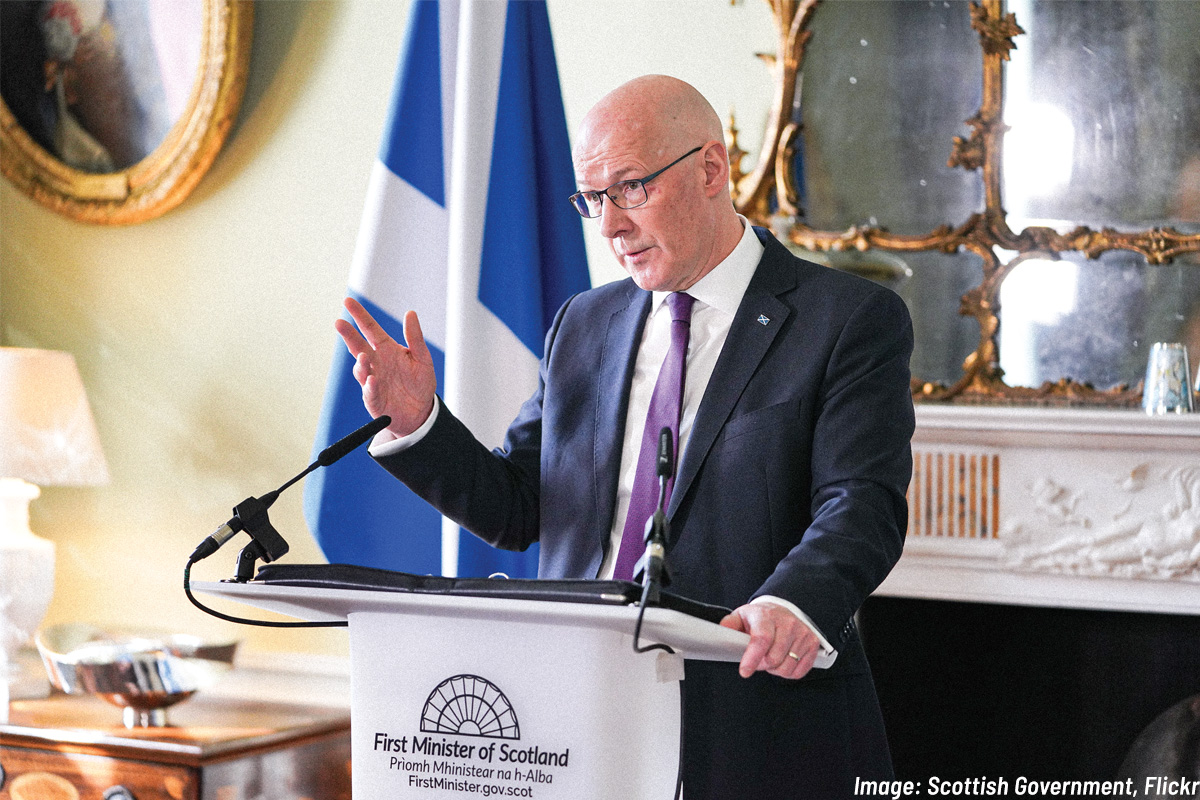The Young Labour National Conference was held over the weekend of the 22nd – 23rd February 2014. As with previous events of this kind, a large proportion of the agenda was given over to speeches by members of the Shadow Cabinet about the necessity of “fiscal responsibility”. Despite this, there was a noticeable shift leftwards in Young Labour, particularly noticeable among those who are newest into the Party. Ben Gliniecki reports from the conference.
Over the weekend of the 22nd – 23rd February 2014 the Young Labour National Conference was held in Bradford with around 250 attendees. As with previous events of this kind, a large proportion of the agenda was given over to speeches by members of the Shadow Cabinet about the necessity of “fiscal responsibility” and the need to “appeal to readers of the Daily Mail”. Despite this, the Left of Young Labour did make itself heard to a greater extent than has been the case over the last few years, signifying a shift leftwards that was particularly noticeable among those who are newest into the Party.
Harriet Harman (the Deputy Labour Leader), Rachel Reeves (Shadow Minister for Work and Pensions), and Jonathan Reynolds (Labour MP) all addressed the conference with fairly uninspiring speeches that emphasised how important young people are to politics, but that failed to offer any coherent solution to the problems that young people face today. True to their “One Nation” brand, these speakers are trying to appease both the workers and the bosses by watering down their message and policies to the lowest common denominator. At a time of capitalist crisis, when workers require radical action in defence of their living standards and the bosses need extreme cuts to those living standards to maintain profits, this means the leaders of the Labour Party are reduced to saying absolutely nothing.
Radicalisation and nationalisation
One Socialist Appeal supporter asked Harriet Harman whether, given that Labour clearly wants to get control over the economy, she should instead be talking about taking energy companies, banks, transport etc. into democratic public ownership under workers’ control? It’s clear that you cannot control what you do not own, and nationalisation on a socialist basis is the only way to guarantee distribution of resources on the basis of need and not profit. This question received an enthusiastic reception from a sizable portion of the conference, although Harriet Harman herself was less than impressed with the idea of nationalisation.
It must have been to her horror then, and to the horror of the entire right wing at the conference, that policy demanding the renationalisation of the railways was passed by the conference. Not only that, but the conference also passed policy demanding: free school meals for all primary school children; massive investment in house-building by the government; and a one-off 10% super-tax on the wealth of the richest 10% of people in Britain. These demands are now the official policy of Young Labour, who will be campaigning to get the Labour Party as a whole to adopt them as part of the next Labour manifesto.
Clearly these demands are limited in what they can achieve. They demand reforms of a capitalist system that has no room left to grant them. The crisis is forcing capitalists to break open every last opportunity for profit making, such as the education system and the NHS. The last thing these capitalists can afford now is to pay 10% of their wealth in a super-tax to fund free school meals, or to allow the removal of railways as an avenue of profit-making. As long as economic power remains in the hands of these people they will hold all the cards and will be able to dictate to the government and the country in whatever fashion they choose – proved by the threats by energy bosses of blackouts if energy prices are frozen. We must demand nothing short of full public democratic control over the economy, its nationalisation under workers’ control, to guarantee that these policies can be implemented.
However, the fact that such policies were passed by the conference demonstrates a certain mood change among young people in the Labour Party, who are looking to increasingly radical solutions to their problems and, like the majority of the public at the present time, are significantly to the left of the Labour Party leadership.
Heated debate: a reflection of the crisis
This was also reflected at the conference by the rejection of the Collins Review (the proposed changes to the Labour Party / Trade Union link) by 109 votes to 107. In the eyes of the right wing bureaucrats, both in Young Labour and the Labour Party as a whole, the youth wing of the Party is supposed to act simply as a cheerleader for the main Party, without having too many ideas of its own. Thus every scheduled speaker at the conference sang the praises of the Collins Review, and even the “balanced” speech introducing the debate was shamelessly supportive of the proposals. It was also clear that this kind of debate had not taken place before, and the leaders of Young Labour were not expecting the kind of division they encountered, because they seemed to have little understanding of how to conduct the voting procedure and were visibly distressed when the vote did not go the way of the right wing.
Given the close outcome of the vote on the Collins Review it was not surprising that the debate itself was passionate and heated. This provoked an outcry, led by the Right of the Party, that the debate had been too “inaccessible”, particularly for first-time attendees, women, LGBT, minority ethnic and disabled people. Such hypocrisy is startling given that it is the policies of the Blairite wing of the Party, which fail to offer anything to working class people in any of these groups, that are the real cause of “inaccessibility” to the Party.
The real “inaccessibility” of the Young Labour conference was in getting to the conference itself in order to have a voice in the debate. Rather than democratically electing delegates from local regions, trade unions, and affiliated Labour Clubs, anyone who attended the conference was entitled to vote. But in order to attend the conference, members needed to be able to pay their own way in terms of transport and accommodation, something that was completely unaffordable for most young people, with the exception of those who have trade union or CLP connections that could provide funding. Such an arrangement meant that just having a voice and a say in the discussions was impossible for the vast majority of Young Labour members. This is a far bigger barrier to democracy and “accessibility” than the passionate (and sometimes heated) tone and language use by speakers in the debate.
It is also significant that it was the speech of a young disabled man that was particularly denounced as “inaccessible”, which confirms the observation that this chorus of objection to the debate was not over a question of men vs women, black vs white, straight vs gay etc., but rather it was a political question of the Right wing, who had lost the debate, versus the Left. As one first-time conference attendee said “if they wanted a nice relaxed day out they probably shouldn’t have come to a political event in the middle of an economic crisis”.
The revolutionary mood of the youth
The presence at the conference of a handful of younger school students who had only recently joined the Labour Party was particularly significant. These young people have little political memory of the last time Labour was in power and so, when looking to get organised against Tory cuts, they naturally gravitate towards the Labour Party without such firm pre-conceptions about the Labour leadership as those who remember New Labour might have. These young people – the youth of the youth – talked openly about nationalisation, socialism, Marxism and revolution. They are looking for an alternative to the world of capitalism and crisis, and they look to the Labour Party to offer that choice. It seems likely that more and more people will, further down the line, follow this route into political activity and we are likely to see this phenomenon pick up in the future.
The right wing and the bureaucracy are strong inside Young Labour, and stronger still inside the Party as a whole. Young Labour still struggles to have an independent voice of its own – the conference was described as a “Policy Conference” and yet disgracefully there were only two hours of policy discussion over the entire weekend. It is clear that the Labour leaders, having burnt their fingers in the past by giving the youth organisation of the Labour Party more autonomy, are trying to keep Young Labour on a tighter leash these days. However, the revolutionary ferment that exists in the minds of young working class people, and which is most obvious outside the Labour Party is, slowly, also beginning to show itself at events like this. This is the future of the movement in Britain: a future of radicalisation and revolutionary conclusions.






